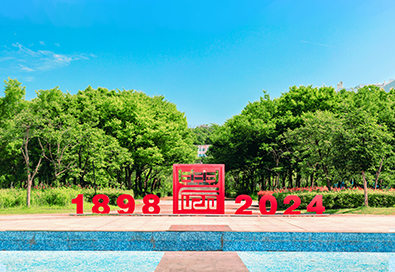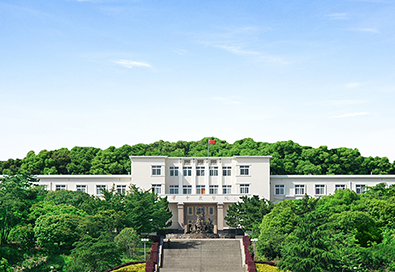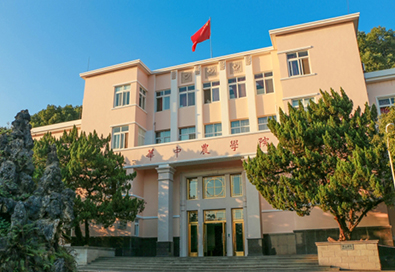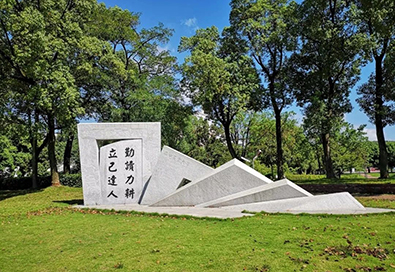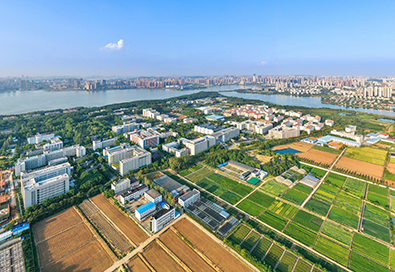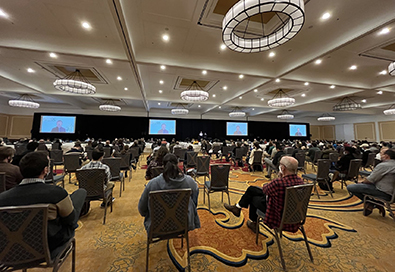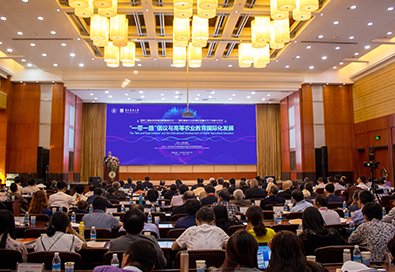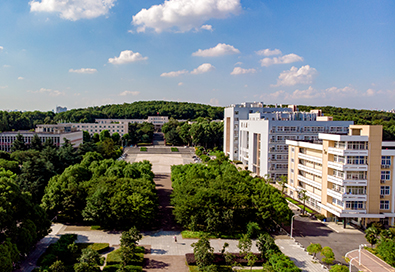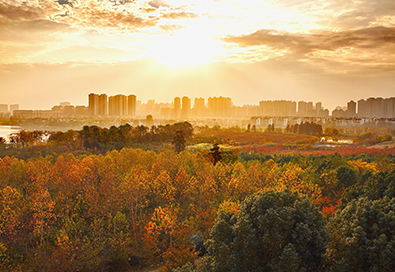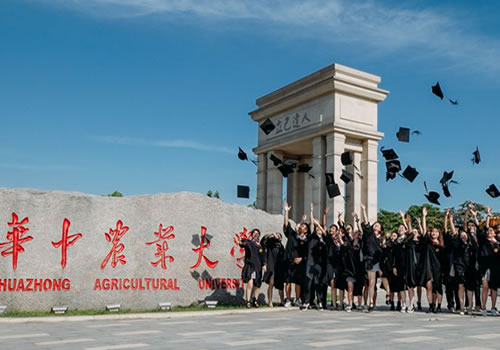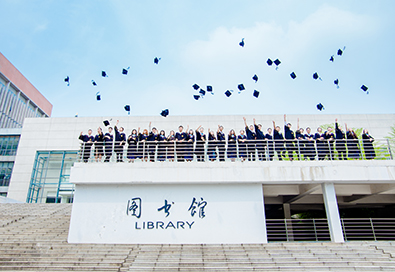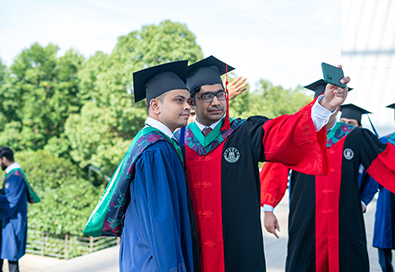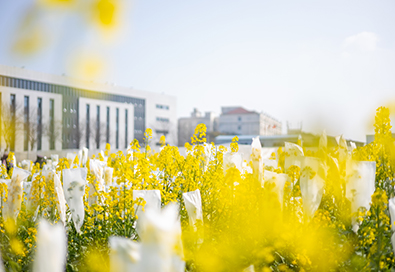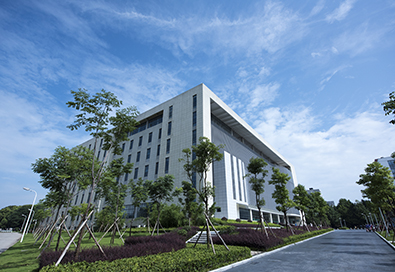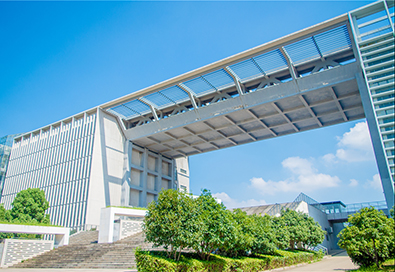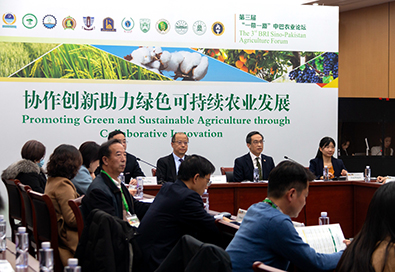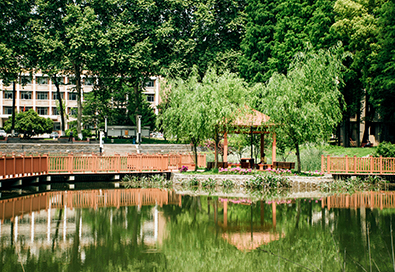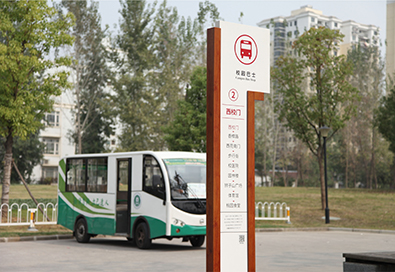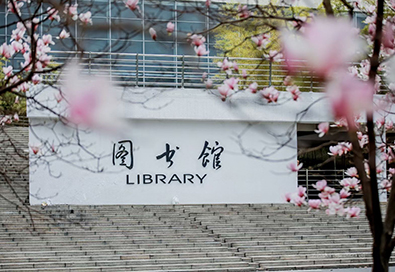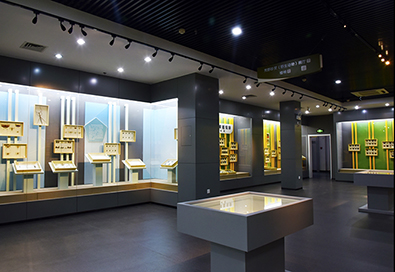Students and teachers from Huazhong Agricultural University (HZAU) recently embarked on an educational journey, visiting Massey University in New Zealand as well as the University of Sydney and the University of Queensland in Australia from Nov 17 to 24.
During their visit to Masey University's School of Agriculture and Environment, the delegation was warmly received by Professor Paul Dijkwel, the center's director.
They discussed topics such as "organic agriculture development", "local plant polyploid genome evolution" and "pasture pest management and control".
Li Lin, vice-dean from the College of Plant Science & Technology, spoke about the basic information of the college and its exploration of cultivating talents in smart agriculture. He expressed the idea of inviting Massey University's School of Agriculture and Environment to participate in the building of the "International Smart Agriculture Science and Education Alliance".
The two sides explored the possibilities of offering full time English-taught courses, hosting academic exchanges and conducting international research cooperation. They reached a consensus on encouraging students to attend short-term exchange programs and summer courses and professors to conduct academic exchanges.
They agreed to further advance the existing "3+2" program and add "smart agriculture" into a joint master's degree program for students.
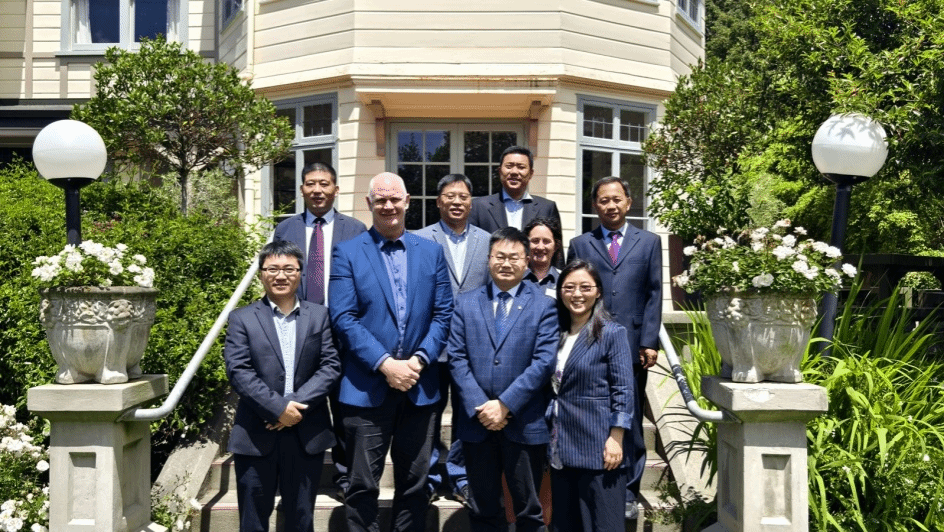
The delegation poses for a group photo at Massey University. [Photo/news.hzau.edu.cn]
After the meeting, the delegation, led by Professor Svetla Sofkova-Bobcheva, visited the Postharvest Fruit Biology Laboratory and the Smart Agriculture Demonstration Garden.
At the Plant Breeding Institute of the University of Sydney, Professor Richard Trethowan, the director of the institute, presented the institute's development history of over a century, as well as its current status and progress in the collection and preservation of wheat rust pathogen strains, the research on wheat rust resistance and the services to farmers.
James Bell demonstrated the Agworld digital system to the delegation, showcasing its ability to manage agricultural information data accurately and provide farmers with precise weather forecasts, pest and disease predictions and crop yield forecasts.
Li Lin briefed the audience on the basic information of the university and its exploration of talent cultivation in smart agriculture. He proposed the joint initiation of the "International Smart Agriculture Science and Education Alliance".
After the meeting, the delegation visited the Wheat Rust Resource Ultra-Low Temperature Repository and the Digital Plant Phenotyping Platform as well as meeting with HZAU alumni working at the institute and engaged in discussions with some students.
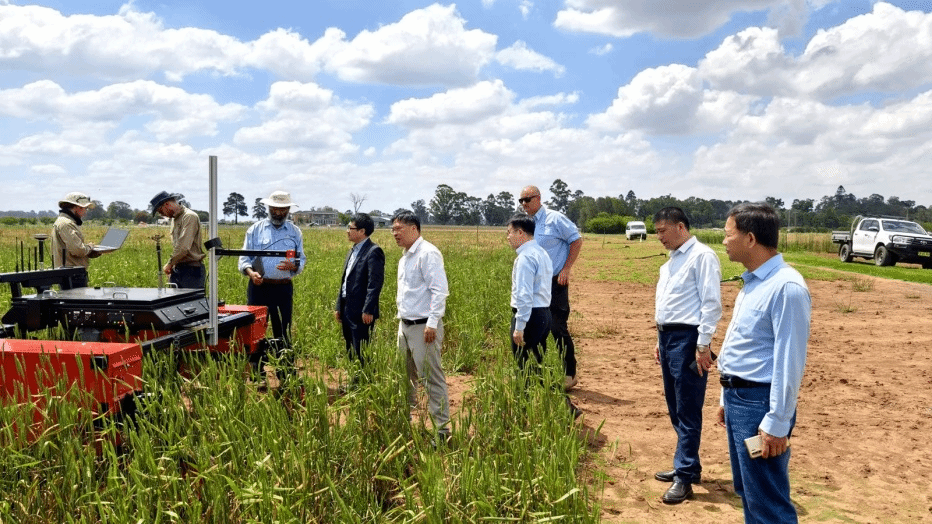
The delegation investigates the wheat farm in Sydney. [Photo/news.hzau.edu.cn]
At the University of Queensland, the delegation communicated with experts from the School of the Environment and representatives from the Queensland Alliance for Agriculture and Food Innovation and International Office.
Both sides reviewed their cooperation history and recent developments, deliberated on areas and measures to deepen collaboration and put forward the initiative of the "International Smart Agriculture Science and Education Alliance".
The delegation also visited Myron Philip Zalucki, an eminent entomologist at the university, a fellow of the Entomological Society of America and two-time chair of the International Congress of Entomology and engaged in face-to-face discussions with young talents planning to participate in HZAU's "Nanhu International Young Scholars Forum".

The delegation and the representatives from the University of Queensland pose for a group photo. [Photo/news.hzau.edu.cn]

